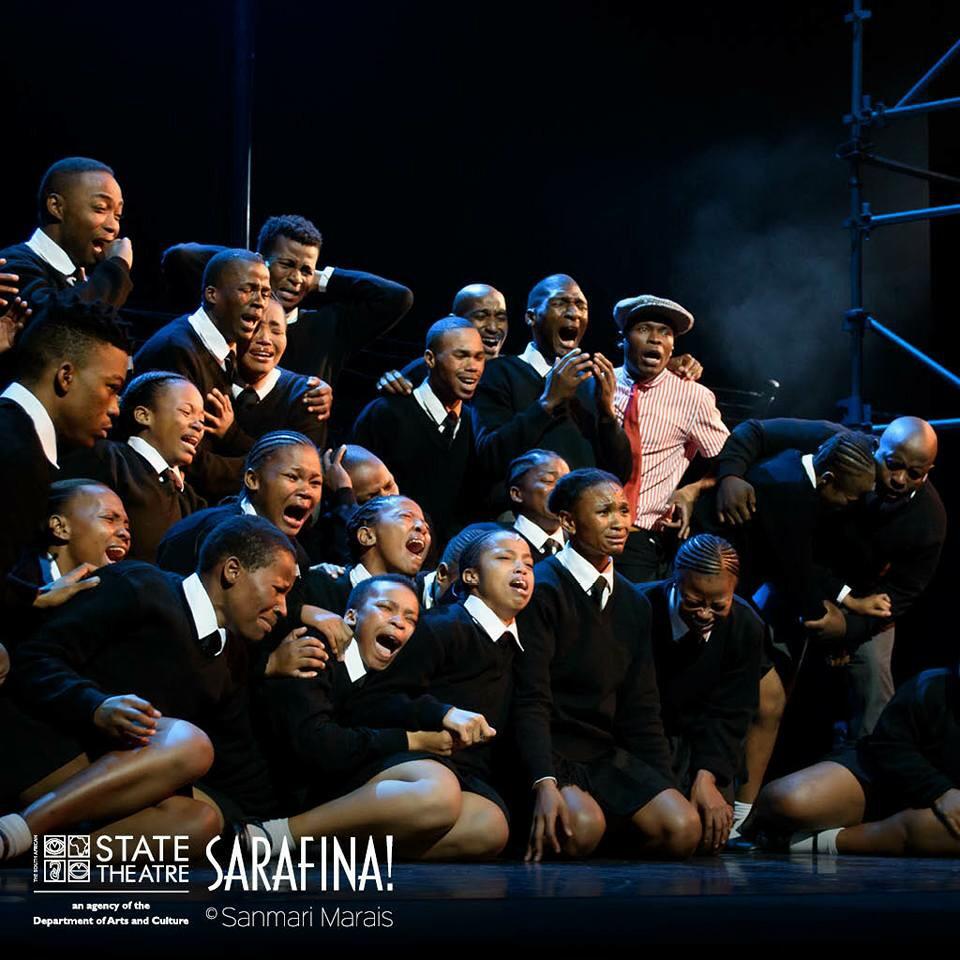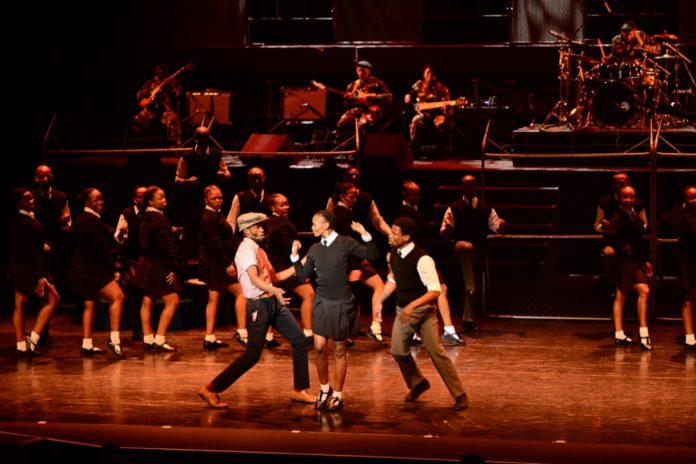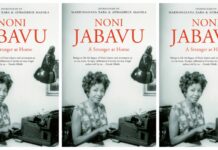Sarafina! is a part of South African tradition. The hit musical which was later turned into a movie features students involved in the 1976 Soweto uprising against apartheid. The lead character is a schoolgirl, Sarafina who is actively fighting against the apartheid government. The musical which was created in 1986 and premiered in 1987 is back in theatres. It is currently playing at the Joburg Theatre until August 11.
The Daily Vox team spoke to director Nhlanhla Ngema and lead actor Noxolo Dlamini about working on the production.
Director Ngema worked on the original stage production of Sarafina, bringing a lot of experience to the 2019 production. For him, the story is a reminder of where South Africa came from as a nation and the freedom that is now being celebrated.
For Dlamini working on the production was a “dream come true”. However, she admits that a lot of hard work was needed to get the role right. Dlamini plays the role of Sarafina in the musical. This role was originally played by Leleti Khumalo in the musical and later in the film adaptation. Dlamini says being chosen to play this iconic role made her proud and humbled her at the same time.
Most young South Africans grew up watching Sarafina which told the story of the bravery of the young people who stood against the oppressive apartheid system. Dlamini was no different. She says that growing up she loved watching the film.
“It was amazing to see a young black woman taking a stand against an unjust system. She and her mistress were brave and courageous and many, including other young boys, looked up to them,” she said. Dlamini adds that for her the film allowed “young black women to believe in their greatness.”
Ngema says the Soweto uprising shaped the political landscape of the freedom found in South Africa. It’s for this reason he believes the message of the story is important. “It is important for our younger generation who were not there during apartheid to understand what this freedom they have now means to them,” he said.
For Dlamini, the story is also deeply personal. Her mother was part of the June 16 uprising and would tell her stories about how it started. Dlamini said: “She would tell me of her involvement, making placards with my father and having to hide their school uniform whenever the policemen came around. This was part of my research for this role.”
Being part of the musical for Dlamini means “being a vessel for this story to continue to be told.” She says that the story is support amongst women and people of colour while teaching those who are not of colour to open up and educate themselves on the themes that this musical deals with.
“Being a part of this production forces me to practice what Sarafina preaches. In order for the role to be truthful, I, the actor, need to believe in what the character is saying,” she said. One of the most rewarding parts of the preparation for the role of Dlamini has been finding the Sarafina within herself.
“The most rewarding part was finding her. Being comfortable in MY Sarafina, not the Sarafina that someone expects her to be,” said Dlamini.

The musical was first presented at the Market Theatre on June 1987. The story remains an important part of South African history. The play is reportedly being restaged to inspire young people and celebrated the women anti-apartheid activists during Women’s Month.
Just days before the show premiered the Joburg Theatre management revealed that Sarafina! playwright, director, and producer Mbongeni Ngema was removed from the set. This was after a female cast member lodged a harassment and intimidation complaint. Ngema is the brother of the director. Ngema has denied the allegations saying it’s character assassination.
Assistant stage manager Sam Madikane was asked to step down as well. This was after he allegedly insisted on relocating to a hotel where female cast members were staying.









